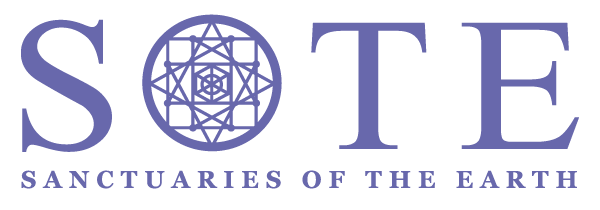“Awe is the feeling of being in the presence of something vast that transcends your understanding of the world”
–Dacher Keltner, Founding Director at The Greater Good Science Center & Chief Scientific Advisor at Hume AI
THE SCIENCE OF AWE
In the Vastness…
The Self Becomes Silent
Research on the science of awe, led by Dacher Keltner and supported by scholars like Jonathan Haidt and Paul Piff, reveals that awe significantly enhances mental and physical health, deepens social connections, and fosters prosocial behavior. Together, their research underscores awe’s transformative power, suggesting that regularly experiencing awe can lead to a more compassionate, healthier, and interconnected society.
Listen to Keltner’s riveting 1:58 second explanation of how awe affects the human brain.
Crystals Ignite Awe
Growing data consistently finds that the emotion of awe is frequently triggered by beauty and nature. Quartz crystals, formed through geological processes over millions of years, captivate with their natural beauty, clarity, and intricate structures. Their ability to refract light into vibrant displays of color and their ancient origins evoke a profound sense of wonder and connection to Earth’s history.
Research shows a high positive correlation between awe and compassion, openness, politeness, industriousness, orderliness and enthusiasm. Physiologically, studies have revealed evidence that awe increases oxygen saturation and decreases heart rate.
Awe Research and Resources
- Why Does Awe Inspire Us to Help Others?, Greater Good Magazine, July 2024
- How the Solar Eclipse May Effect the Brain and Bring People Together, BBC, April 2024
- Feeling Awe Might Help Kids Be More Generous, Greater Good Magazine, Sept 2023
- The Secret of Happiness at the Top of a Bell TowerWas Emerson Right About the Healing Power of Awe? John Templeton Foundation, 2021
- New Insights From the Science of Awe, Psychology Today, 2012
- The Science of Awe White Paper, Greater Good Science Center, UC Berkeley, 2018
- Awesome Awe: The Emotion that Gives us Superpowers, NewScientist, 2017
- The Science of Awe: Can Psychologists Chart What Happens When Nature Blows Your Mind?, Sierra, 2014
- Approaching Awe, a Moral, Spiritual, and Aesthetic Emotion, Keltner / Haidt, 2003
DATA PROVES
Awe Awakens the Highest Virtues Within Us
Improved Life Satisfaction
46% increase after awe experiences
(Rudd, 2012)
Environmental Stewardship
20% increase in conservation efforts willingness
(Zhao, 2021)
Lowers Stress
Significant reduction in self-reported stress (Anderson, 2018)
Increased Altruism
40% more likely to assist others
(Piff, 2015)
More Creative
75% increase in novel insights
(Shiota, 2007)
Better Physical Health
Linked to lower risk of heart disease, depression, diabetes
Get Involved
Help us diminish the urban awe deficit and catalyze pathways for human connection, belonging, healing and transformation.
